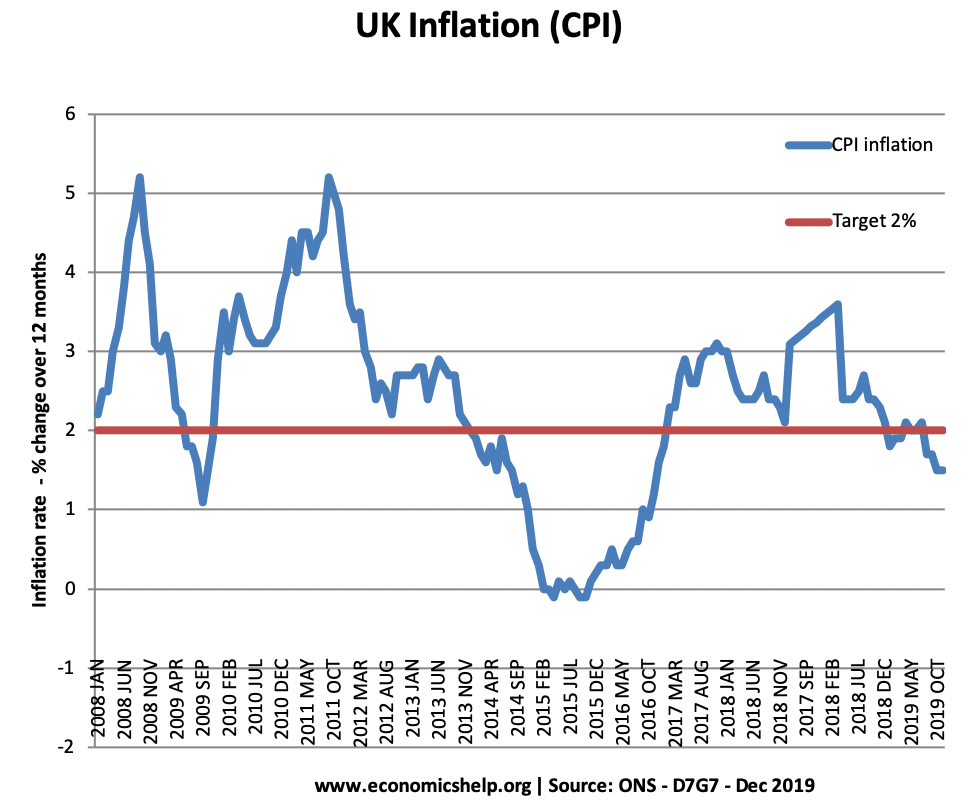Effects of Zero inflation on Aggregate Demand (AD)
Readers Question: I was really hoping you might be able to inform me of the effects that zero inflation (which the UK is currently experiencing) might have on aggregate demand in the economy? Firstly, this post will help consider the impact of zero inflation on AD and economic growth – Is zero inflation a good …


